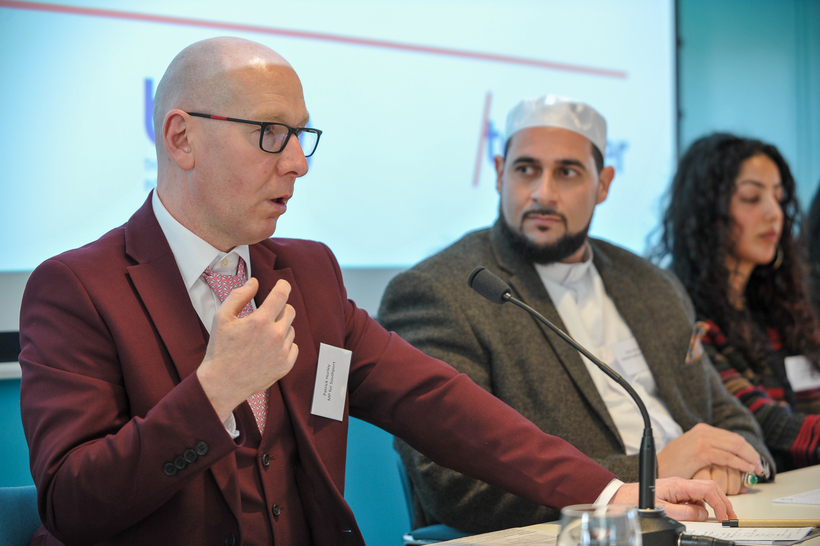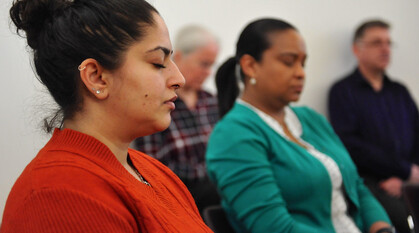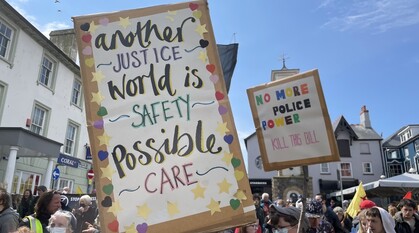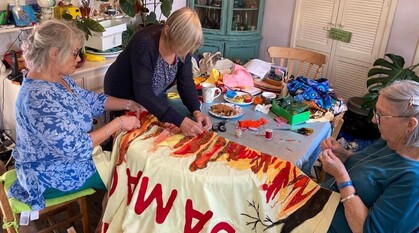Faith organisations can strengthen communities: findings from The state of us
One year on from racially targeted violence in the summer of 2024, Lisa Cumming reflects on some of the findings from The state of us report.

"Communities are built among individuals who know each other." – Minute 26, Yearly Meeting 2025
One year on from the racially targeted violence in the summer of 2024, The state of us report argues that the UK remains vulnerable to further unrest and this is an issue that everyone, everywhere can help address.
The report by British Future and the Belong Network, with support from the Together Coalition, also says that faith and civil society have much to contribute.
The State of Us
The state of us: community strength and cohesion in the UK (2025) provides a foundation for the Independent Commission on Community and Cohesion to deliver a national conversation about current challenges and how to foster connectedness and cohesion in the long-term.
The state of us argues the UK remains vulnerable to further unrest if underlying tensions and interconnected challenges are left unaddressed. At the time of writing, the summer of 2025 has seen further violence and unrest. Sanctuary seekers describe no longer feel safe and another called Nabil shares his plea for understanding in a letter to the Guardian that, "...every refugee has a story – and every human being deserves dignity."
Underlying issues include inequality and financial pressures, online experiences, polarised and divisive debates, and low trust in decision makers, the report notes. It comments on how rapidly "tensions and unrest can spread in contemporary Britain, particularly in an online era" and calls for the country to be better prepared for such challenges whilst avoiding alarmism. This situation calls for national resource and action from policymakers, without leading to an unhelpful 'one size fits all' approach.
Importantly, at a hyper-local level, attitudes towards community found by the report are generally positive and many people describe warm relationships within their street or estate. In addition, a majority of the public feel that people from different backgrounds get along well, although this can vary from place to place.
What can civil society and faith organisations contribute?
- The work is fragmented, overstretched and underfunded. There is further potential to fund, scale and connect up this work on cohesion and community strength, especially to enable sharing of good practice between organisations.
- Conflict resolution and dialogue approaches have a role to play in addressing issues in communities but these require skills, training, and sustained funding.
- Opportunities for networking and capacity building are needed to avoid this work taking place in silos.
- More spaces for dialogue are needed to enable those with polarised views to constructively air concerns and learn of others' experiences or perspectives.
- Civil society and faith groups can contribute through new initiatives for community connection, including spaces for dialogue and mutual learning across different backgrounds and perspectives.
How our ongoing work connects with the findings
Quakers in Britain already facilitate and support networks for good practice sharing and mutual support with those engaging in community relationship and conflict work.
Quakers in Britain have been accompanying and supporting the Peacebuilding Network of Britain and Ireland since 2020. This network, founded by the Centre for Good Relations, provides space for peacebuilding and conflict practitioners to reflect and learn together and support each other.
More recently, the Peacebuilding in Britain team has convened the Quaker Interfaith Peacebuilding Group and the Quaker Peacebuilding Network for Quakers to share experiences, difficulties and dilemmas, to identify emerging common challenges and share good stories and new ideas.
Quakers in Britain have also spoken out about the closure of the Inter Faith Network which worked to deepen inter faith understanding and co-operation.
We also accompany, where invited, those engaging in dialogue and difficult conversations within and between communities.
This includes supporting individuals and organisations engaged in really inspiring community dialogue work, organisations like Who is Your Neighbour.
Through listening to many practitioners engaged in conflict work we see the need to better consider the wellbeing of those undertaking it.
We also note that the hard work of those engaging in conflict work on the ground can be seriously undermined by the narratives, policies and behaviours of politicians and others in positions of power.
Further contribution to faithful action
- Consider making time at a local meeting level to read and reflect on Minute 26 from Yearly Meeting 2025 which asks, "How do we as Quakers address violence and conflict in our local communities and across Britain?"
- Find out more about the work of Peacebuilding in Britain and if you'd like to get involved in the networks or projects, request a workshop, seek advice, or share positive stories - please contact peacebuildinginbritain@quaker.org.uk
- Take a look at our toolkit Engaging with conflict, challenging hate toolkit (PDF) for examples and reflection prompts on how to grapple with and respond to conflict and hate, including the two hands of nonviolence
Get notification of a diverse range of faith in action opportunities by signing up to our Quaker Faith in Action newsletter or email faithinaction@quaker.org.uk. Quakers in Britain's accounts on Instagram, Facebook and Bluesky provide good sources of news, events and action alerts about other Quaker work for peace.


